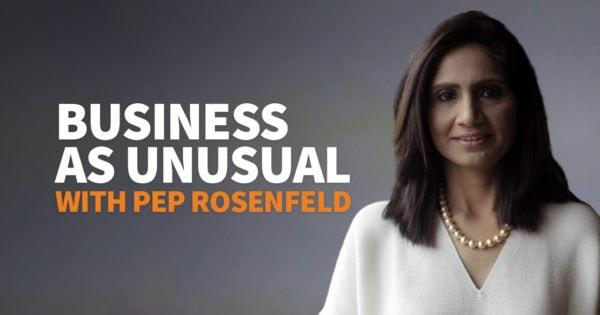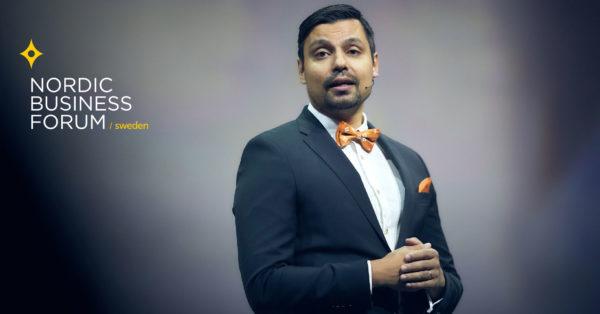5Sep2019
When you think of the future, how do you imagine your future job?
Work is affected by the rapid pace of radical change – and powerful forces are shaping work itself, as well as where we work and who does the work. Village Works spoke to eight professionals from different fields to discuss the future of work. Buckle up, we are heading to the future!
Together with machines, we can create something tremendous
Artificial intelligence and robotics are without a doubt transforming the way we work. According to the World Economic Forum, machines will continue to take over tasks from people, especially the repetitive and routine ones. No profession is immune to change, from factory workers to CEOs, say futurists Niko Herlin and Cristina Andersson. Yet, Niko and Cristina are far from being intimidated; they are quite excited about the future.
“It’s said that everything creative is made by humans. But that’s not true. Robots have already created movie trailers, poetry, and art. It’s better to imagine what we can do together with robots,” says Cristina.
Cristina believes that company board members and political decision-makers should use robots to manage the ever-growing flood of information. “Machines will give us magic powers and, together, we can create something new and tremendous.”
“Humans are still needed,” Niko points out. “Robots will give us a hand, but they will not replace us.” One thing is for certain: robots will change the way we work.
”Cyber work – physical work carried with the help of robots – will increase,” claims Cristina. Doctors will perform operations from a distance and emergencies will be handled without ever sending a human being to the danger zone.
“Those forerunners who will create and take advantage of these new concepts are the next billionaires in this world,” predicts Cristina.
Healthier and happier future
Creating a better work-life balance and a strong sense of wellbeing at work have become increasingly important for most of us. Wellbeing specialists Joni Jaakkola and Johanna Jussila believe that new technologies have the potential to help us achieve these goals.
The human physiology has been the same for thousands of years and the main ingredients for one’s wellbeing have not changed much, nor will they in the future. It comes down to a good balance among sleep, healthy eating, and lots of activity. That’s the key to our wellbeing and keeping up with the fast-paced work life.
However, new technologies come in handy when we have to manage our limited “self-care” time or make daily choices, from deciding when to take a break to figuring out what to eat. An office robot can instruct you to go do yoga or meditate for an hour and even take over your tasks while you enjoy your much-needed break. It would be like having a personal trainer or assistant that accompanies you all day long and reminds you to make better, healthier choices in your daily life.
And the benefits don’t stop at improving our physical wellbeing. Equally, if not more, important is our emotional health. Emotion evangelist Camilla Tuominen believes that many of us are lost with our emotions and can’t read the signs our body sends us. She and business designer Jussi Pullola highlight that the key to a better and healthier working environment is inside every single one of us; recognizing our own negative emotions and dealing with them.
Besides all this, there is a greater advantage Joni is after, “What if we don’t need to work anymore to pay our bills?”
While that may be an exaggeration, he points out that handing over the necessary but monotonous tasks to robots would leave people with more time to concentrate on the things that we find meaningful and stimulating, such as solving problems, writing poems and articles, or just having discussions with our colleagues.
Is it time to say goodbye to your office space?
The traditional boundaries of our workspaces are disappearing and work can now be conducted anywhere at any time. So, what does this mean for our traditional office spaces? Will we still commute to our office every morning to meet up with our human and robot colleagues? Probably not, believes Head of Design Markus Viiperi.
”In the last ten years, the world has already shrunk so much. Unless we will figure out a productive way to travel, we will most likely work remotely,” says Markus.
However, working remotely doesn’t mean working alone. Workday designer Aku Varamäki believes that new technologies can give us a strong feeling of presence in work communities, even though people may be scattered all around the globe.
As the work evolves, workplaces must also adapt. Aku highlights that the home has never been, nor will it be, a productive or desirable place to work. Setting up satellite offices or cafés for remote workers is the new trend in international companies.
Markus believes that we will not need physical workplaces in the future at all. We will be holograms in a virtual reality office and conduct meetings with our colleagues from all over the world with the click of a button.
Adapting is the only way to go
Forget the doomsday predictions that say robots will take over all the jobs. Our specialists believe in a brighter future where machines are colleagues that will work in a way that allows for humans to have more time to do work that demands creativity, imagination, and passion.
“Of course, this requires plenty of adapting from us,” says Niko. Adaptability and flexibility are key skills to master in the future, according to both Niko and Cristina. The greatest threat to our society is not robots but our own inability to adapt to the changing world.
To learn more about the future of the work from Village Works, check out their video series (in Finnish):
- Uudistu, ja et jää robotin jalkoihin: https://youtu.be/qUZZW9OymLA
- Tunteet työpaikalla: https://youtu.be/pNJuNg_PMXA
- Miten pysyä terveenä hektisessä työelämässä: https://youtu.be/CICWHbzQZOU
- Tulevaisuuden työtilat: https://youtu.be/W_wnExKLweY
This article was written by NBForum 2019 partner Village Works.

 by:
by: 
